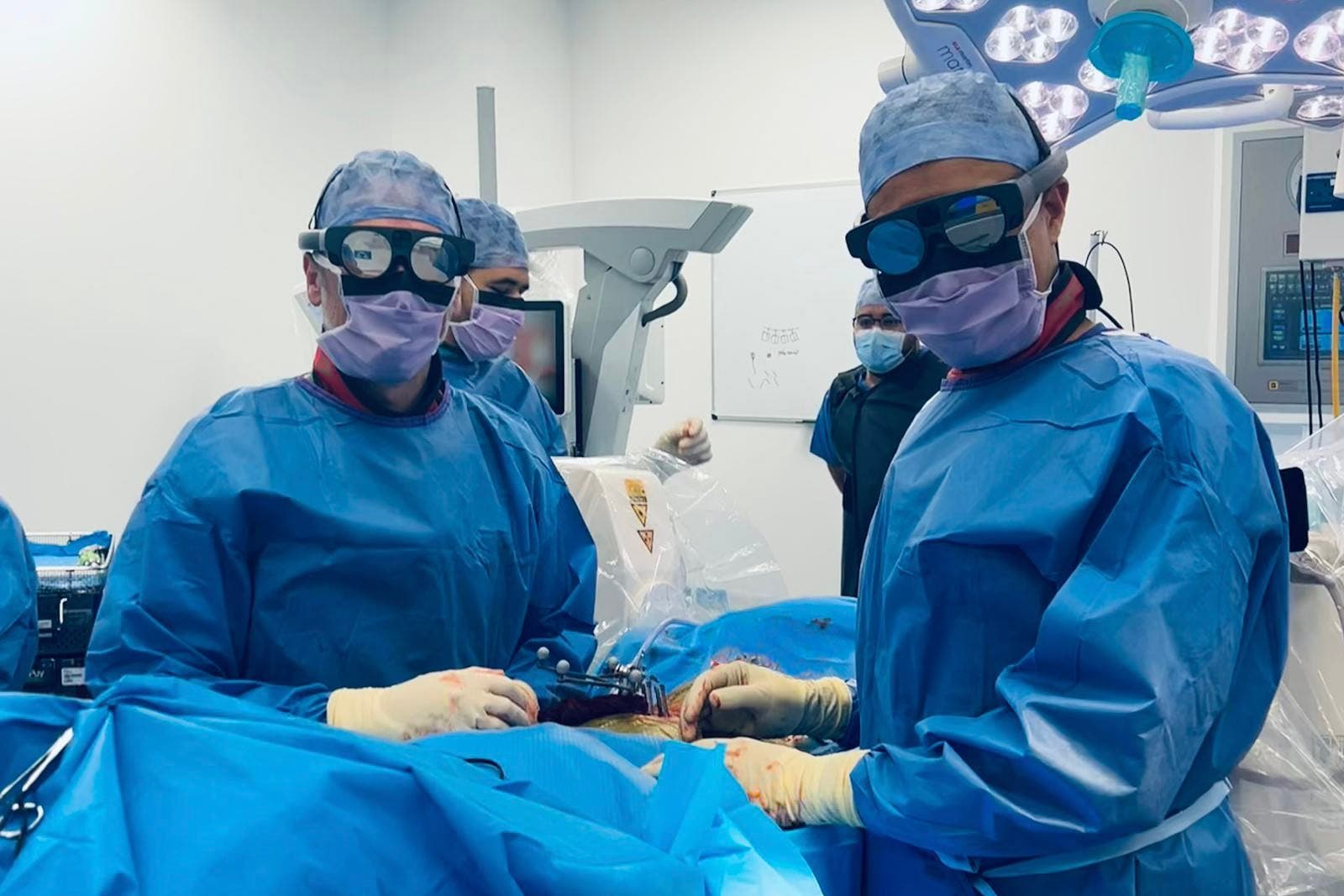Surgeons use technology to ‘see inside’ body for the first time in UK
Grandmother-of-six Carol Toal, 75, was the first patient to be operated on

Your support helps us to tell the story
From reproductive rights to climate change to Big Tech, The Independent is on the ground when the story is developing. Whether it's investigating the financials of Elon Musk's pro-Trump PAC or producing our latest documentary, 'The A Word', which shines a light on the American women fighting for reproductive rights, we know how important it is to parse out the facts from the messaging.
At such a critical moment in US history, we need reporters on the ground. Your donation allows us to keep sending journalists to speak to both sides of the story.
The Independent is trusted by Americans across the entire political spectrum. And unlike many other quality news outlets, we choose not to lock Americans out of our reporting and analysis with paywalls. We believe quality journalism should be available to everyone, paid for by those who can afford it.
Your support makes all the difference.Surgeons performed an operation using technology which allows them to “see inside” a patient’s body for the first time in the UK.
The Institute for Neurological Sciences in Glasgow is only the third centre worldwide to have used mixed reality (MR) technology.
Images are relayed through MR goggles rather than looked at on a screen – giving an accurate view of the body and spinal anatomy, as part of a trial with manufacturer Brainlab.
The institute provides specialised care for patients, and is operated by NHS Greater Glasgow and Clyde (NHSGGC), which welcomed “innovations”.
Grandmother-of-six Carol Toal, 75, was the first patient to be operated on, to correct a misalignment of her spine, treat a spinal cyst and decompress spinal nerves.
The issues left Mrs Toal, from Irvine, North Ayrshire, with chronic pain in her leg and back, and she struggled to walk more than 25 yards without stopping.
She described the operation as “lifesaving” and less than a week later, she no longer suffered from chronic pain in her leg.
The procedure involved a system called Spine Mixed Reality Navigation, which fuses intraoperative X-rays with external images of a patient.
Mohamed Abdelsadg, consultant neurosurgeon and complex spine surgeon, said: “The result is we are effectively able to see inside a patient’s body while we are performing the operation.
“This means the surgery is much more accurate, is much less invasive, and minimises surgical damage to other tissue.
“We already do a lot of minimally invasive work using an earlier Brainlab system, so we were familiar with the set-up and this felt more like a software upgrade rather than a completely new system.
“Also, the spinal neurosurgeons arranged for three days’ training in the Institute’s Teasdale simulation suite, which allowed us to familiarise ourselves with the kit. This meant the technical part of the operation went well.
“Our early experience was certainly positive and we all feel this system has real potential to build on the advanced neurosurgical work we do at the institute.”
Less than a week after the operation, Mrs Toal’s leg pain was resolved although she was experiencing back pain due to the surgery, the surgeon said.
Mrs Toal said: “My leg is much better and though I still have some pain in my back I’m feeling really hopeful.
“Before the pain got too bad, I used to be really active, going swimming, taking lots of holidays with my husband, Robert, and spending time with our six grandchildren, so I’m really looking forward to being able to do more in future.
“I’d just like to say thank you to everyone who’s been involved in my care. I can’t praise them highly enough – in fact, the surgeon and his team really have been lifesavers for me.”
Susan Groom, NHSGGC director of regional services, said: “The Institute for Neurological Sciences, and services across NHSGGC, are always looking to embrace innovations that are shown to improve outcomes for our patients.
“I would like to thank the team at the institute for their work during the trial, and express my appreciation to Brainlab for coming to us with this new equipment.
“Being the first in the UK, and the third in the world, to use this technology is a further demonstration of the high regard internationally in which the institute is held.”